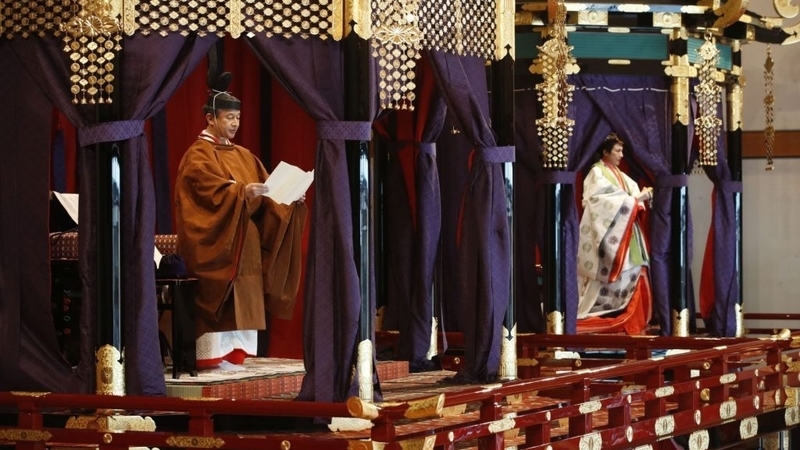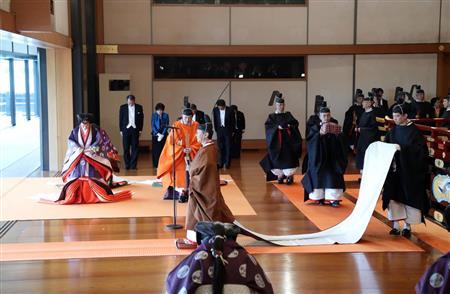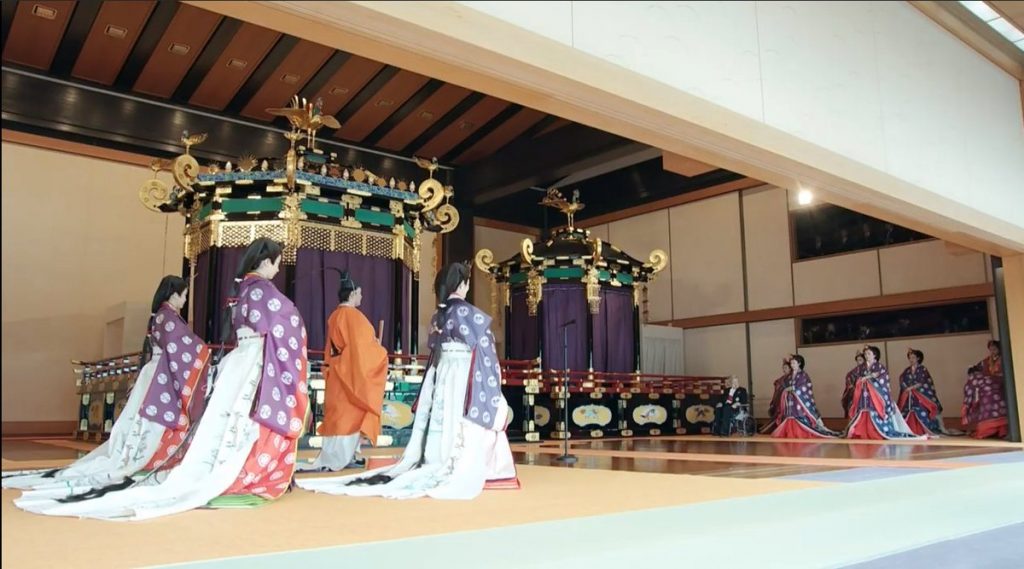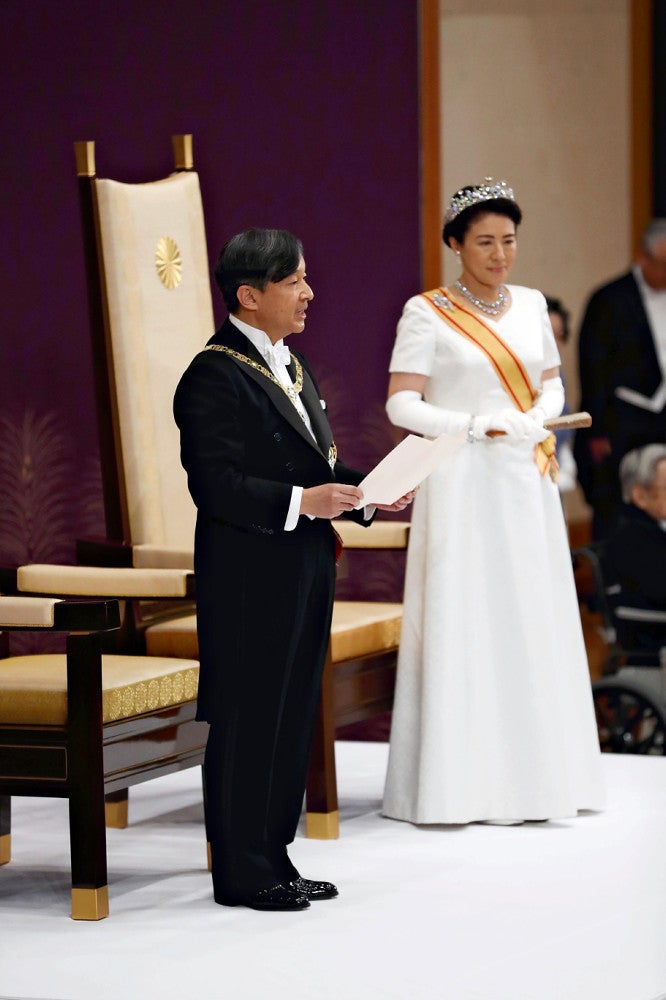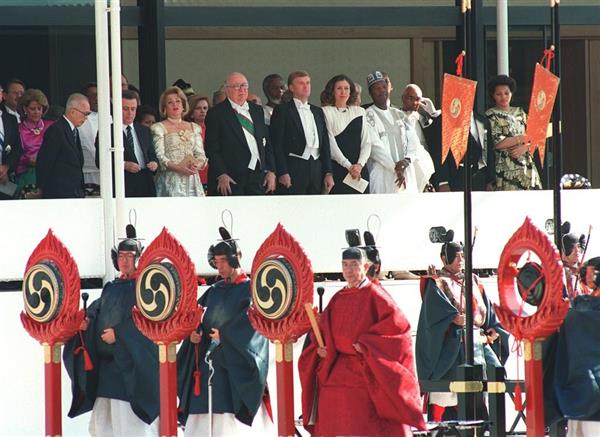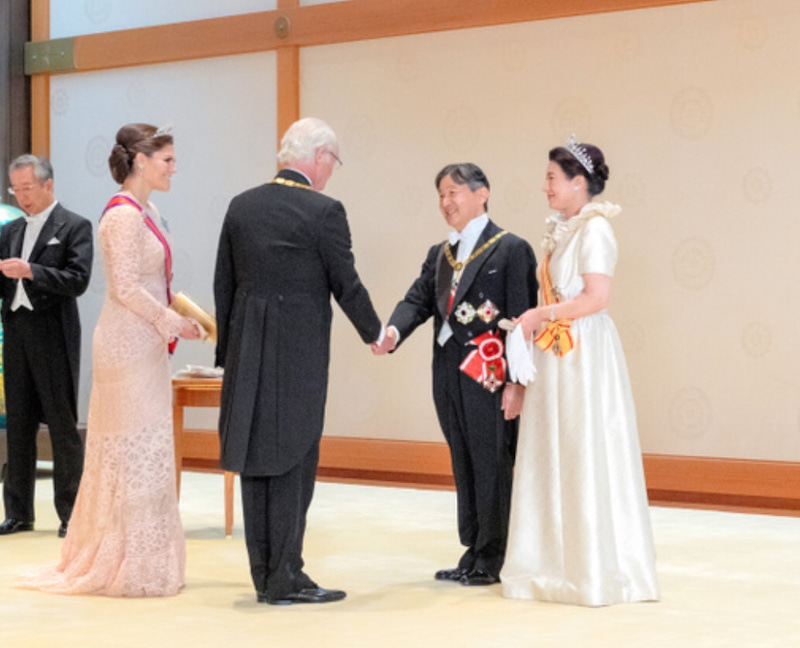A new era – The enthronement of Emperor Naruhito
On May 1, 2019, Naruhito ascended Japan’s imperial throne as the 126th emperor of the nation and began a new era of Japan called Reiwa. After Akihito’s 31-year rule in the Heisei era, Naruhito and his wife and crown princess Masako must now take over as head of the royal family. The titles of these eras and every other period before it is enacted with each new inauguration of an emperor. However, this is the first time that an era is titled from a Japanese poem, as eras have usually been based on Chinese text.
Japan’s royal family has undergone a significant change in their role in Japenese society in the last century. Throughout World War 2, Hirohito, the emperor at the time, was guided by his government officials to commit actions that eventually lead the death of thousands and even being branded as a war criminal.
These actions, however, as expressed in his various journals, were not entirely intentional and were the result of his innocence as royalty and ignorance of the outside world. His remorse for his actions lead to his decision to renounce the Japanese royal status as divinity and instead painted his role and the emperors to follow as constitutional, symbolic monarchs. He passed on these changed ideals to his son, Akihito, and taught him that his purpose as the emperor is to be a symbol of peace, happiness, and harmony.
Naruhito has large shoes to fill as the new emperor. Throughout Akihito’s ruling, he worked to advocate for modernity and breaking long-held traditions and behavior from the royal family. He worked for the people and wanted the best for his country, as seen from him kneeling with those affected by the 2011 earthquake.
Akihito also married a commoner and raised his son and now emperor with his wife alone, both of which were unheard of until his ruling. He worked to connect and restore his nation after the brutal World War 2, and now, with his declining health, he hopes to have Naruhito carry on his legacy and work.
Now, as the new emperor, Naruhito hopes to attain global peace by establishing connections with other nations. Depicted from the meaning of the Reiwa era as peace and harmony, he also wished for his people’s happiness and good health.
Although Japan is a nation of modern advancements that many other countries envy, the deep, traditional root of its culture is still prevalent through characteristics like the royal family. This reflects the general atmosphere of Japan today: a balance between the old and the new.
Categories
- Beauty (3)
- Eat (11)
- Essay (25)
- her-yous, his-yous (2)
- Movie & Art (1)
- Music (1)
- Shiro the white fox ~ Diary of grumpy old dog (12)
- Uncategorized (4)
- What's New (5)


